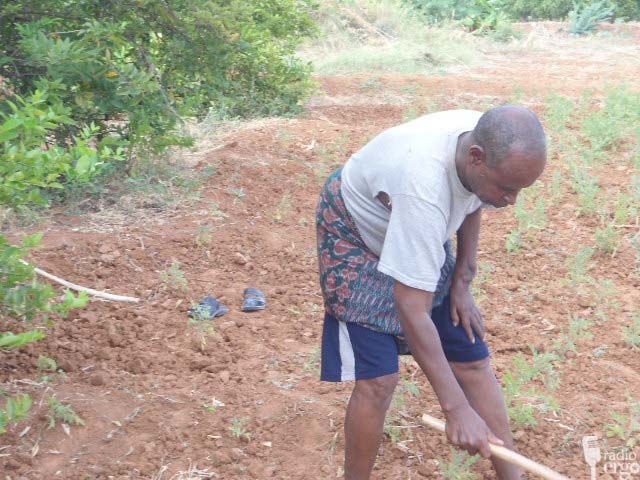(ERGO) – People often stop and do a ‘double take’ when they see Saida Hassan Adan out at work – especially if she is dressed in hard hat and overalls at the top of an electricity pole fixing cabling.
Saida, 26, is the only female electrical engineer working for the National Energy Corporation Somalia (NESCOM) in Garowe.
As such, whilst she loves her job and wants to encourage other women in the sector, she attracts some attention that is not always welcome.
“The issue is when I am working I can’t have any privacy, especially from men. Some ask if I need help to get down, others hurl inappropriate words that no one deserves!” Saida told Radio Ergo.
“Once when people asked me my profession and I explained that I am an electrical engineer, they asked why I was wasting my parents’ time and money. People think it’s not a woman’s job!”
Saida has certainly set out to prove such people wrong. She studied electrical engineering in Sudan, after being offered a government scholarship, which she accepted after completing the first year of development studies at Puntland State University.
“I came back home and told my mother,” Saida said. “I thought this would be a challenge, I thought that it sounded exciting.”
There were five other Somali female students on her course, including four from Hargeisa. Saida was the only one who specialized in power systems.
“Women have never had the opportunity to learn about power systems engineering, only men have had the privilege. I was the only woman who took this option. I took a break from my studies at one point to go and look at the energy sector market and I saw a lot of employment opportunities,” she explained.
Saida and three other women who studied outside the country are campaigning for the learning of science, technology, engineering and mathematics in Somali classrooms. They often visit elementary and lower primary schools to create awareness and inspire the female graduates of the future.
They show photographs and demonstrate the use of equipment to the children and encourage interests in computers and technology.
“It will become normal for these young children to think of women learning about computers and working in forensic science,” she said.











